You encounter business management in every successful organization. Business management means leading, organizing, and optimizing resources to achieve goals. You need strong management skills to drive results, whether you are a student, a professional, or a business owner. Companies that focus on data-driven management report 4% higher productivity and 6% higher profits. Google’s research links effective management to higher team productivity and lower turnover. Today, you see technology, AI, and flexible learning formats transforming management education and daily practice.

You shape the future of any organization through business management. Business management means using your skills to plan, organize, lead, and control resources so you can reach your goals. When you study business management, you learn how to make decisions, solve problems, and guide teams in Malaysia. You see these skills in action every day, from small businesses to global corporations.
Business management covers many areas. You might focus on finance, marketing, operations, or human resources. Each area needs strong management to succeed. If you choose a business management major, you gain a broad understanding of how companies work. You also learn how to adapt to changes in the market and use data to make better choices.
Modern business management relies on both numbers and people. You use quantitative analysis to guide your decisions. For example:
You replace guesswork with data-driven decisions. This approach aligns with the core principles of business management.
Case studies also play a big role in business management research. You learn from real examples of leadership, teamwork, and innovation. Researchers use case studies to show how leaders motivate teams in Malaysia or how entrepreneurs grow their businesses. These stories help you see what works in the real world. They also show you the value of clear goals, strong communication, and smart strategies.
If you take business management courses, you study both theory and practice. You learn from statistics, case studies, and real business problems. This mix prepares you for many roles in business administration or management.
You succeed in business management by mastering six core functions:
When you focus on executing the four functions of management—planning, organizing, leading, and controlling—you build a strong foundation for success. Staffing and directing add depth to your management skills.
You see these functions in every business administration role. For example, a manager in a retail store plans sales targets, organizes staff schedules, leads team in Malaysia meetings, controls inventory, hires new employees, and directs daily operations.
Today, technology makes these functions easier. FanRuan and FineReport help you integrate data from many sources. You use FineReport to create dashboards and reports that track your progress. These tools let you see real-time data, spot problems early, and make better decisions. You can manage inventory, monitor sales, and analyze financial performance—all in one place.
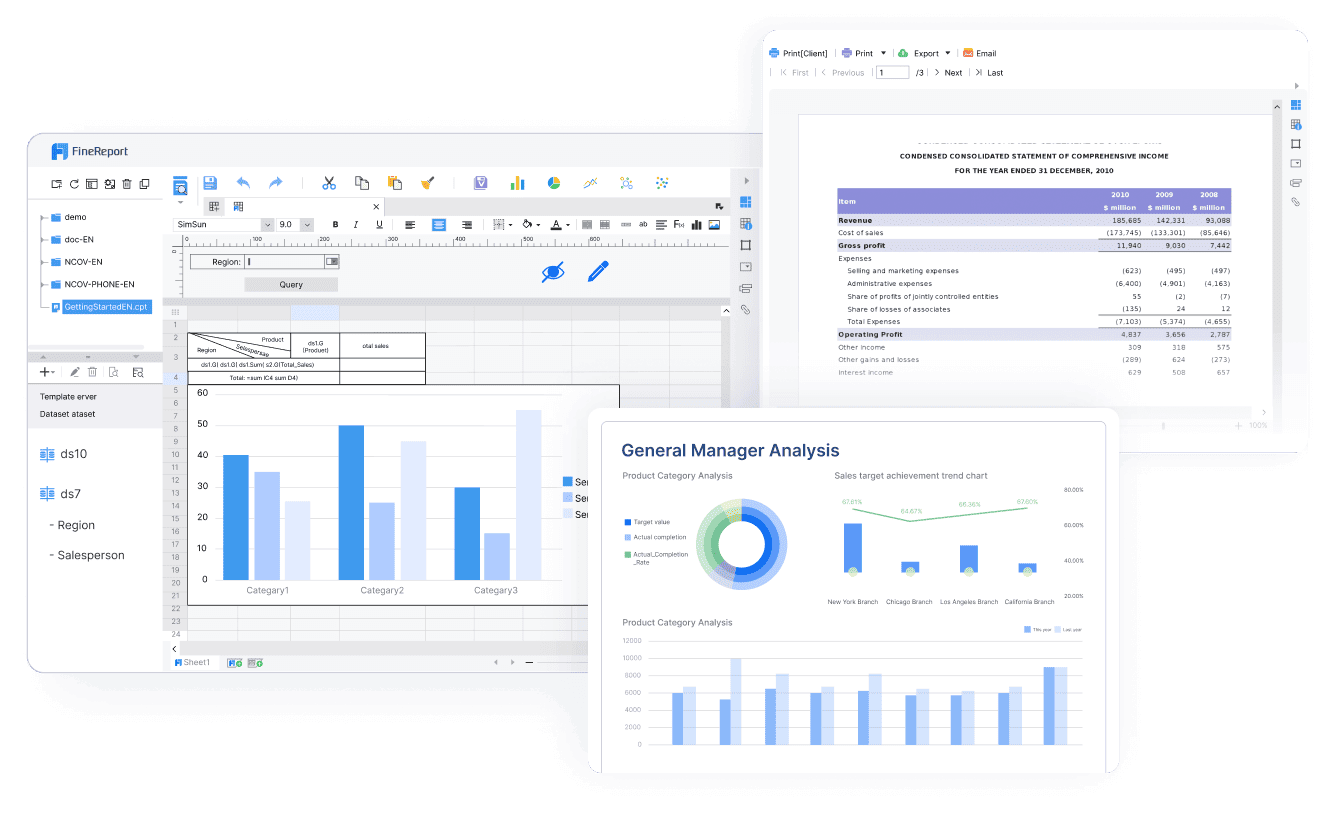
If you want to advance your career, business management courses and a business management major give you the skills you need. You learn how to use data, lead teams in Malaysia, and solve problems. You also gain experience with digital tools like FineReport, which are now essential in business administration.
Tip: Mastering the basics of business management prepares you for leadership roles and helps your organization thrive in a fast-changing world.
You drive success in any organization by setting clear objectives. Business management starts with defining what you want to achieve. When you set specific, measurable, achievable, relevant, and time-bound objectives, you give your team in Malaysia a clear direction. These objectives help you focus resources and energy on what matters most.
You can use frameworks like the Balanced Scorecard to measure progress from different perspectives—financial, customer, internal processes, and learning. Common metrics include revenue growth, profit margin, customer satisfaction, and employee performance. When you track these metrics, you see where your organization stands and where you need to improve.
FineReport makes it easy to set and monitor objectives. You can build dashboards that display key performance indicators (KPIs) such as sales growth, customer retention, and employee turnover. With real-time data, you quickly spot trends and adjust your strategies. This approach supports meeting business goals and keeps everyone accountable.
You notice measurable improvements when you apply effective management practices:
You achieve business goals faster when your teams in Malaysia work in sync. Business management ensures everyone understands the objectives and their role in reaching them. When you align your team in Malaysia, you reduce confusion and improve collaboration.
You see the benefits of alignment in your results:
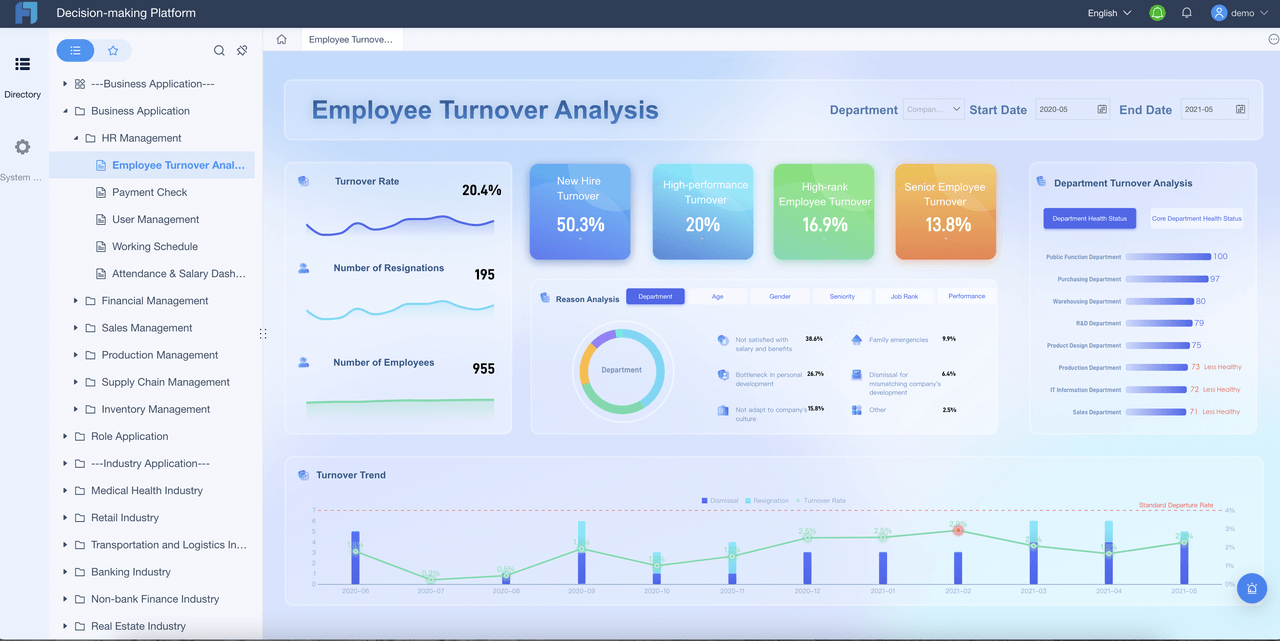
When you use FineReport, you create a connected narrative from your data. Teams in Malaysia understand how their efforts contribute to business management success. This clarity drives motivation and helps you reach your objectives.
You drive organizational success by mastering leadership and effective communication. These are essential elements of effective business management. When you lead with vision and clarity, you inspire your team in Malaysia to achieve shared goals. Research shows that strong leadership directly improves team motivation and productivity. Transformational leaders foster a collective vision and encourage open dialogue, which leads to higher employee satisfaction and performance. Effective communication ensures your message is clear, feedback is valued, and everyone stays aligned. Improving workplace communication can boost productivity by up to 71%. As you develop these business management skills, you also reduce resistance to change and create a culture of trust.
A business management degree helps you build these skills through real-world projects and leadership training. You learn to apply communication models and leadership strategies that prepare you for management roles. FanRuan’s FineReport supports you by providing dashboards and reports that keep your team in Malaysia informed and engaged, making it easier to share updates and track progress.
You face challenges every day in management. Effective business management requires you to solve problems quickly and accurately. Quantitative analysis gives you the tools to identify trends, forecast outcomes, and make data-driven decisions. Techniques like model building, decision theory, and optimization help you evaluate alternatives and choose the best path. These skills lead to measurable results, such as completing projects on time, staying within budget, and maintaining high quality standards.
You can use FineReport to analyze complex data, monitor key metrics, and implement solutions that improve efficiency. A business management degree strengthens your problem-solving abilities by teaching you structured approaches and real-world application. As a result, you become more adaptable and confident in reaching your career goals.
Strategic thinking stands at the core of effective business management. You need to see the big picture, set long-term goals, and allocate resources wisely. The benefits of strategic planning include clarity, focus, competitiveness, and innovation. However, many leaders struggle to communicate strategy—only 5% of employees can identify their company’s strategy. You overcome this by dedicating time to strategic reflection, using analytical tools, and fostering a culture of continuous learning.
| Aspect | Statistic/Insight |
|---|---|
| Strategic Planning | Drives growth, innovation, and accountability |
| Leadership Buy-In | 51% of successful companies cite leadership support as key |
| Strategy Awareness | Only 5% of employees know their company’s strategy |
| Time Spent | 70% of leaders spend less than one day/month on strategy |
A business management degree equips you with frameworks for strategic thinking and decision-making. FineReport empowers you to translate strategy into action by tracking KPIs and visualizing progress. As you master these essential elements of effective business management, you position yourself—and your organization—for long-term success.
Tip: Business management graduates who develop these skills see higher retention, faster response times, and greater achievement of business objectives.
You gain a competitive edge when you practice proper business management. Organizations that focus on management excellence see higher survival rates and long-term growth. About 20% of new businesses fail after the first year, but those that use data-driven management and adapt to change have a better chance of lasting a decade or more. You can see this in the table below:
| Evidence Type | Details |
|---|---|
| Business Survival Rates | About 20% of new businesses fail after the first year; only ~35% survive 10 years or longer (U.S. BLS). |
| Data-Driven Decisions | Using data to guide business actions reduces failure risk and improves decision quality. |
| CEO Perspectives | 45% of CEOs believe their companies must reinvent themselves to stay viable in the next 10 years. |
With FineReport, you improve data visibility and decision-making. You track key performance indicators, manage supply chains, and optimize inventory. Manufacturing companies use FineReport to connect procurement, sales, and warehouse data, which leads to better control and efficiency. You also enhance trust and accountability, which accelerates profits and builds a strong reputation.
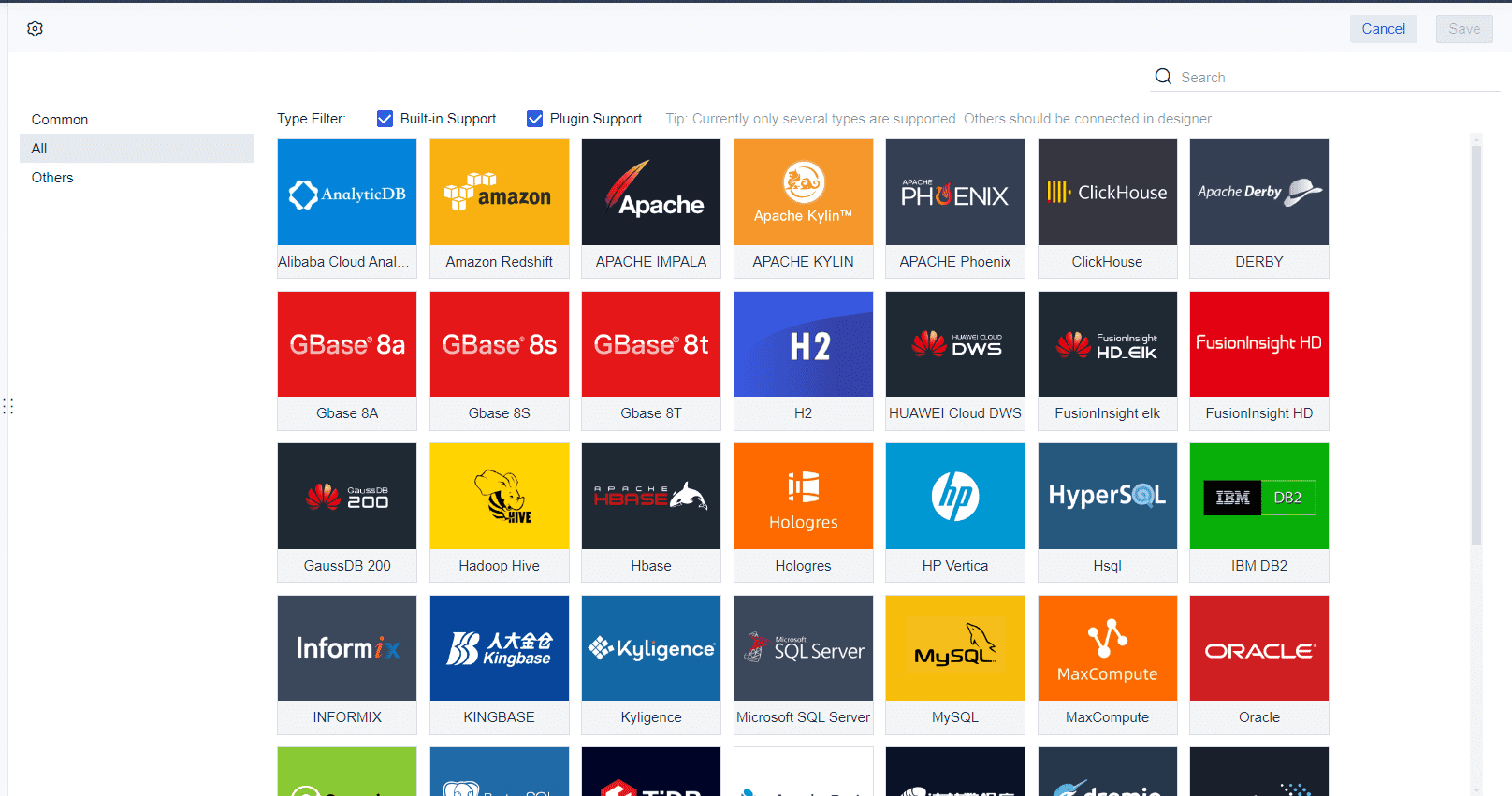
You empower your team in Malaysia when you invest in effective business management. Employees benefit from clear goals, fair evaluations, and opportunities for growth. Research shows that when you offer career development and training, you boost motivation and retention. In manufacturing, regular training and transparent performance reviews help employees feel valued and engaged.
FineReport supports these efforts by making performance data easy to access and understand. You can use dashboards to track progress, set targets, and celebrate achievements. This approach creates a culture where employees know their contributions matter and see a path for advancement.
Note: When you involve employees in management processes and provide real-time feedback, you increase job satisfaction and reduce turnover.
You deliver better experiences to your customers through proper business management. Setting clear goals, using technology, and empowering your team in Malaysia all lead to higher customer satisfaction. The table below highlights how management practices improve customer outcomes:
| Business Management Practice | Measurable Improvement in Customer Satisfaction |
|---|---|
| Setting SMART goals | Higher CSAT scores and loyalty |
| Cross-team collaboration | Increased retention and faster response times |
| Technology and automation | Real-time tracking and reduced churn |
With FineReport, you monitor customer feedback and respond quickly to issues. You use dashboards to track satisfaction scores and resolve problems before they escalate. This proactive approach builds trust and encourages positive reviews.
You see the benefits of proper business management in every part of your organization. You make smarter decisions, support your team in Malaysia, and keep your customers happy—all with the help of tools like FineReport and solutions from FanRuan.
You build a strong foundation for your career by mastering the key functional areas of business management. Specializing in areas like marketing, finance, and operations opens doors to leadership roles and faster career growth. Many professionals advance by gaining experience across these functions, pursuing a business management degree, and staying current with industry trends. You see that companies value managers who can handle complexity and adapt to different business environments.
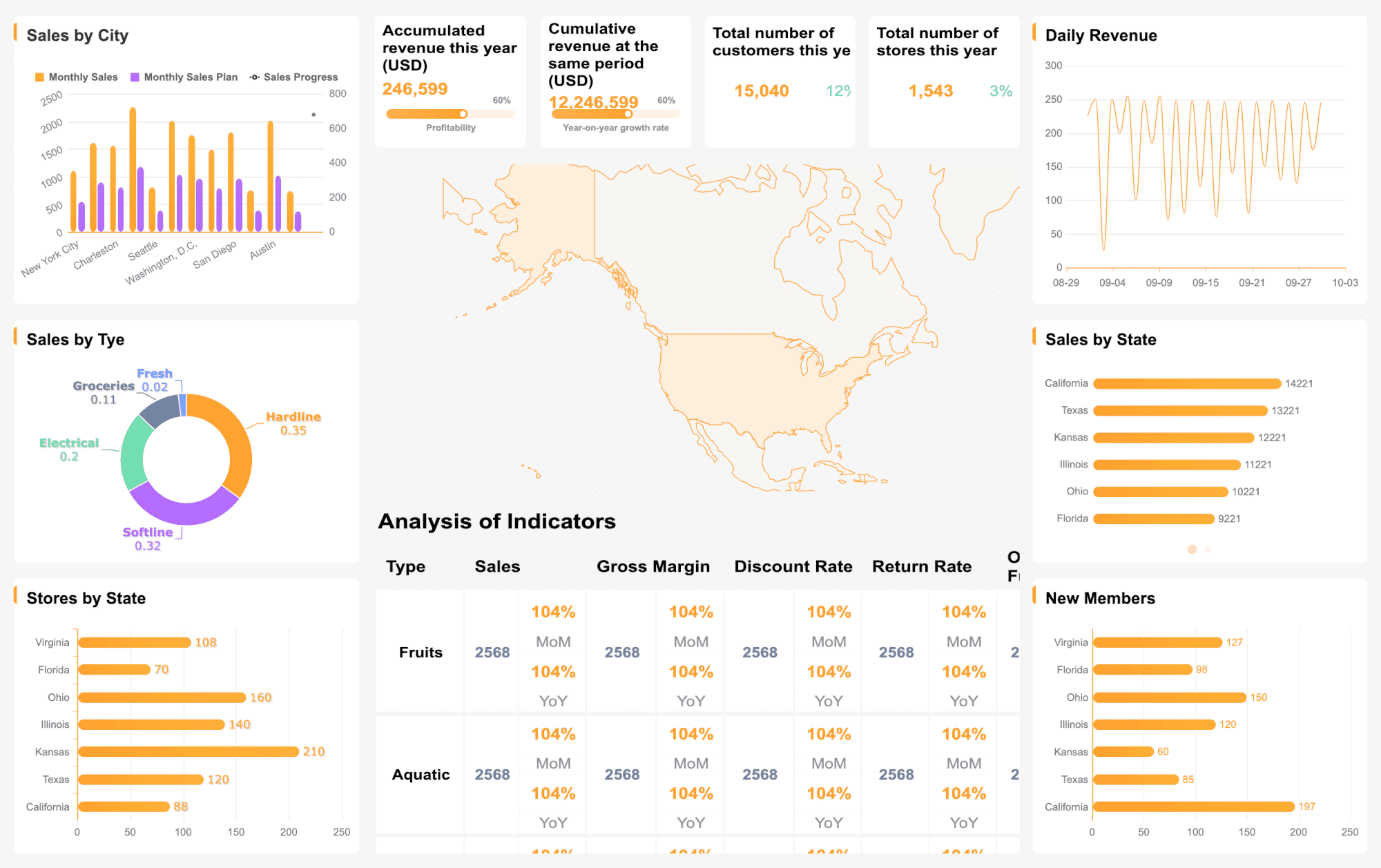
You drive business success by understanding and applying marketing management strategies. Modern marketing relies on data from many sources, such as sales reports, customer feedback, and social media analytics. Clean, accurate data helps you create personalized campaigns and refine your messaging. You use marketing information systems to track customer behavior, optimize marketing channels, and measure campaign results. Companies like Google and Amazon use these systems to stay ahead of competitors and deliver better customer experiences. Technology platforms, including FineReport, help you integrate marketing data, analyze trends, and make informed decisions. When you focus on key performance indicators and ROI, you ensure your marketing efforts support business growth.
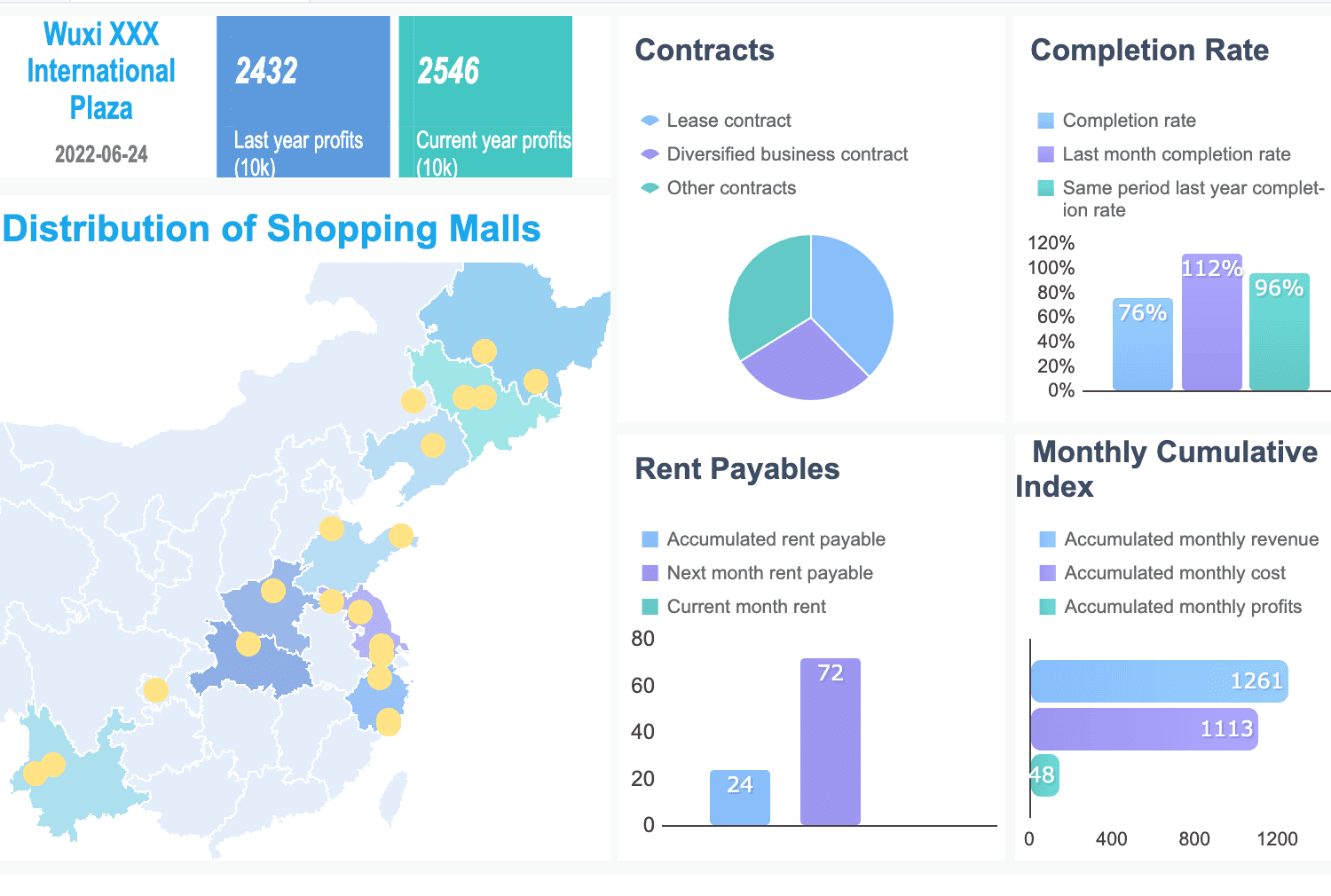
You ensure business growth and stability through effective financial management. You track important metrics to measure your company’s financial health and make smart decisions. A business management degree gives you the skills to analyze financial data and manage resources wisely. Digital tools like FineReport make it easy to visualize financial performance and share insights with your team in Malaysia.
| Financial Performance Metric | Description | Role in Business Growth |
|---|---|---|
| Revenue and Revenue Growth | Total income generated and its rate of increase over time. | Indicates business expansion and market demand. |
| Gross Profit Margin | Percentage of revenue exceeding cost of goods sold. | Reflects production efficiency and pricing strategy. |
| Net Profit Margin | Percentage of revenue remaining after all expenses. | Measures overall profitability and financial health. |
| Net Income | Revenue left after all expenses including taxes. | Shows actual profit contributing to growth. |
| Cash Flow | Money generated from regular business activities. | Indicates liquidity and sustainability. |
| Return on Investment (ROI) | Efficiency measure of investments. | Assesses profitability of investments fueling growth. |
| Debt-to-Equity Ratio | Ratio of company debt to shareholder equity. | Reflects financial leverage and risk management. |
You avoid risks like negative cash flow or high debt by monitoring these metrics. FineReport supports you by integrating financial data from multiple sources, helping you make timely and accurate decisions.
You improve efficiency and productivity through structured operations management. You set clear objectives, measure performance, and use technology to streamline processes. A business management degree prepares you to lead teams in Malaysia, manage resources, and solve operational challenges. Digital tools like FineReport allow you to monitor key metrics, automate reporting, and identify areas for improvement.
You see real results from structured operations management:
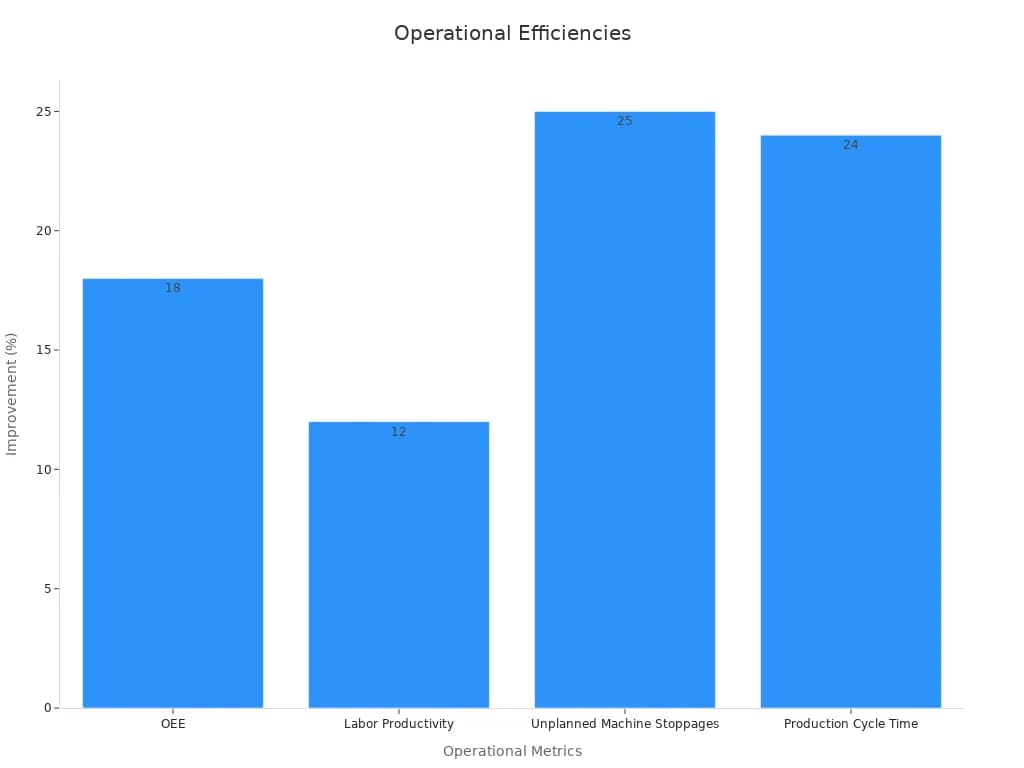
Earning a business management degree and mastering these functional areas give you a competitive edge. Digital tools like FineReport are now essential for success in modern business management roles.
You achieve business goals and drive organizational success when you master business management. You use descriptive, inferential, diagnostic, predictive, and prescriptive analysis to guide your decisions and improve outcomes. FineReport helps you turn data into action, making your management more effective. Consider building your business management skills in Malaysia or exploring digital tools to advance your career.
Click the banner below to try FineReport for free and empower your enterprise to transform data into productivity!

The Author
Lewis
Related Articles

What is a data management platform in 2025
A data management platform in 2025 centralizes, organizes, and activates business data, enabling smarter decisions and real-time insights across industries.
Howard
Dec 22, 2025

Top 10 Database Management Tools for 2025
See the top 10 database management tools for 2025, comparing features, security, and scalability to help you choose the right solution for your business.
Howard
Dec 17, 2025

Best Data Lake Vendors For Enterprise Needs
Compare top data lake vendors for enterprise needs. See which platforms offer the best scalability, integration, and security for your business.
Howard
Dec 07, 2025